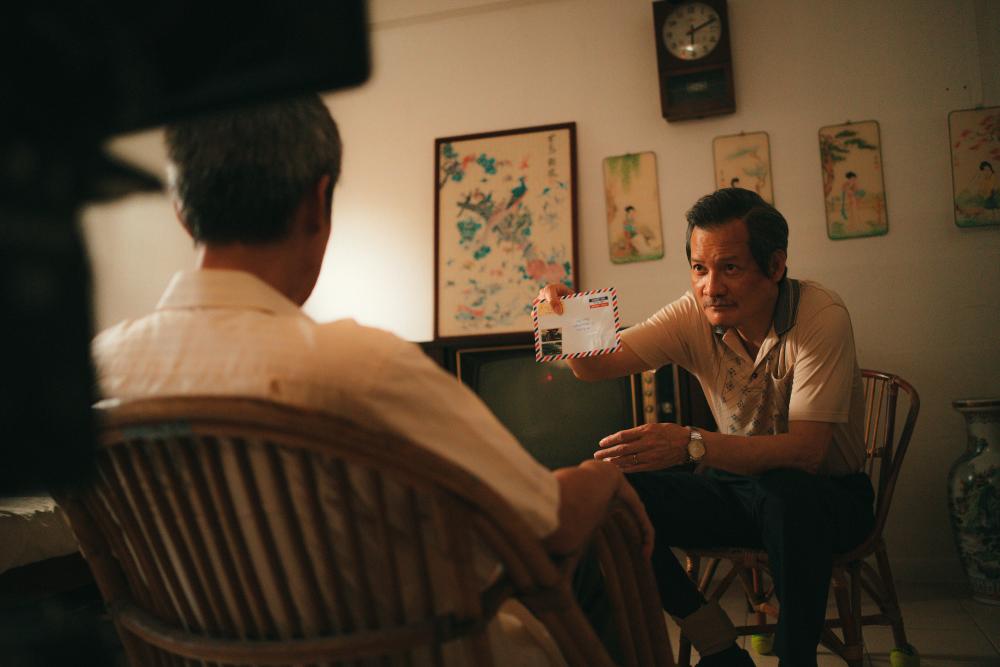SINCE its premiere last November, Wonderland has taken on a life of its own. From premiering internationally to receiving an award from Palms Spring International Film Festival, the Singaporean film has earned plenty of critical acclaim.
Its success even surprised director Chai Yee Wei, who noted Wonderland performed beyond his expectations in a recent press conference.
What is it about?
Set in 1980s Singapore, the movie follows single father Ah Loke (Mark Lee). Loke, who has a daughter Eileen (Xenia Tan), sells his ancestral home to fund her studies in New York. He then moves into a one-bedroom rental flat.
There, he meets neighbour Tan (Peter Yu). Since Loke is illiterate, he seeks Tan’s help to write letters to Eileen. Unfortunately, devastating news soon arrives from abroad, causing Tan to devise a series of lies to delay the truth.

Heartwarming
During the press conference, Wonderland was likened to Thailand’s hit movie How to Make Millions Before Grandma Dies. Considering both films revolved around family, it was contended Wonderland was a marketing response to the latter film.
To which Chai rebutted, citing both films certainly have identities of their own but noted the two share the ability to move their audiences emotionally. For instance, various touching family and communal values were present throughout Wonderland.
Each character possessed the depth to enrich the film’s emotional credibility. Loke’s relationship with Eileen is one example of this. The pair have a heartwarming father-and-daughter relationship on screen. Both actors complement each other, giving a convincing and moving portrayal of the characters’ relationships.
Loke’s interaction with his neighbour Tan was also another emotional highlight in the film. It was pleasant to watch them banter on screen, navigating their differences for their own good. Their interaction gave the film a humorous as well as an emotional edge.

Daring risks
The film also has much to be praised for the risks it took. Chai did not shy away from incorporating “daring” elements into the film. His take on death, sexuality and trauma in the film certainly deserves plaudits.
Chai’s approach to the topics was careful yet impactful. It was evident he put a lot of thought into those scenes. Aside from the plot, Chai’s risk was also shown through Lee’s casting as the film’s lead. Prior to Wonderland, Lee has predominantly been known for his comedic chops.
Hence, it was surprising to see him take on a different genre, let alone a heavy and emotional piece such as Wonderland. Even Chai was initially hesitant to cast him.
“I was worried Lee’s strong comedic persona might make it difficult for the audience to connect with his character. That is why I hesitated to cast him. But after his first audition, I was convinced. He possesses two essential qualities of a good actor: intelligence and imagination,” said the director.
Viewers would be pleased to know that Chai is right. Lee’s comedic persona was nowhere to be found throughout the film. He was unrecognisable as Loke, proving he has the tools in his locker to bring the character to life.

Lost in translation
The only bone to pick with Wonderland is its inconsistent subtitles. Considering the film is mainly in Hokkien, English subtitles are necessary for non-Hokkien speakers to follow the film’s plot.
Unfortunately, the English subtitles were absent at certain parts, such as certain points during the climax. When they were present at the climax, they were not in sync, making it tough for non-Hokkien speakers to follow.
In hindsight, Wonderland is a cinematic treat despite the inconsistencies of the subtitles. The film is a great addition to Asian cinema, promoting wholesome family and communal values while providing good entertainment.
Wonderland is showing in cinemas.









